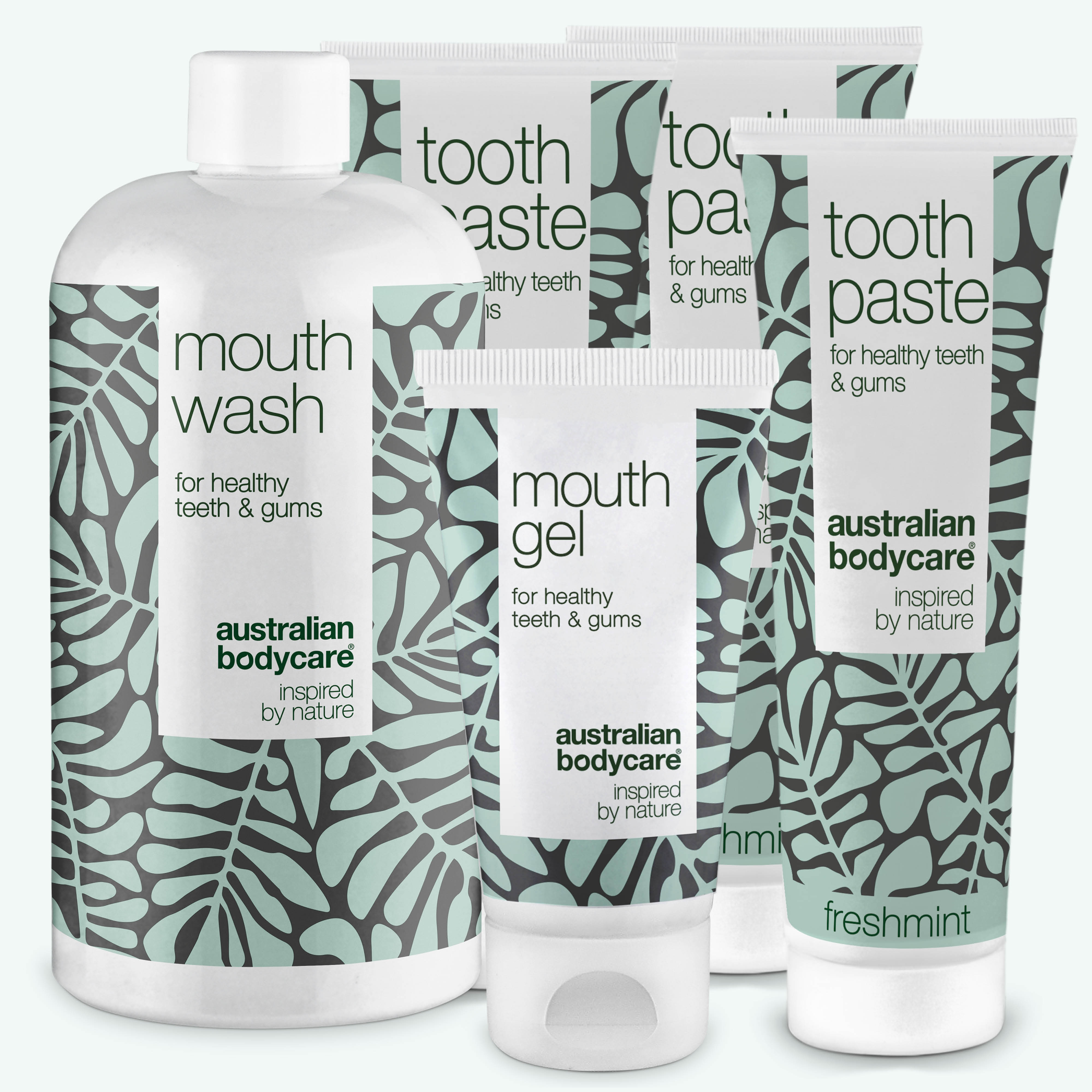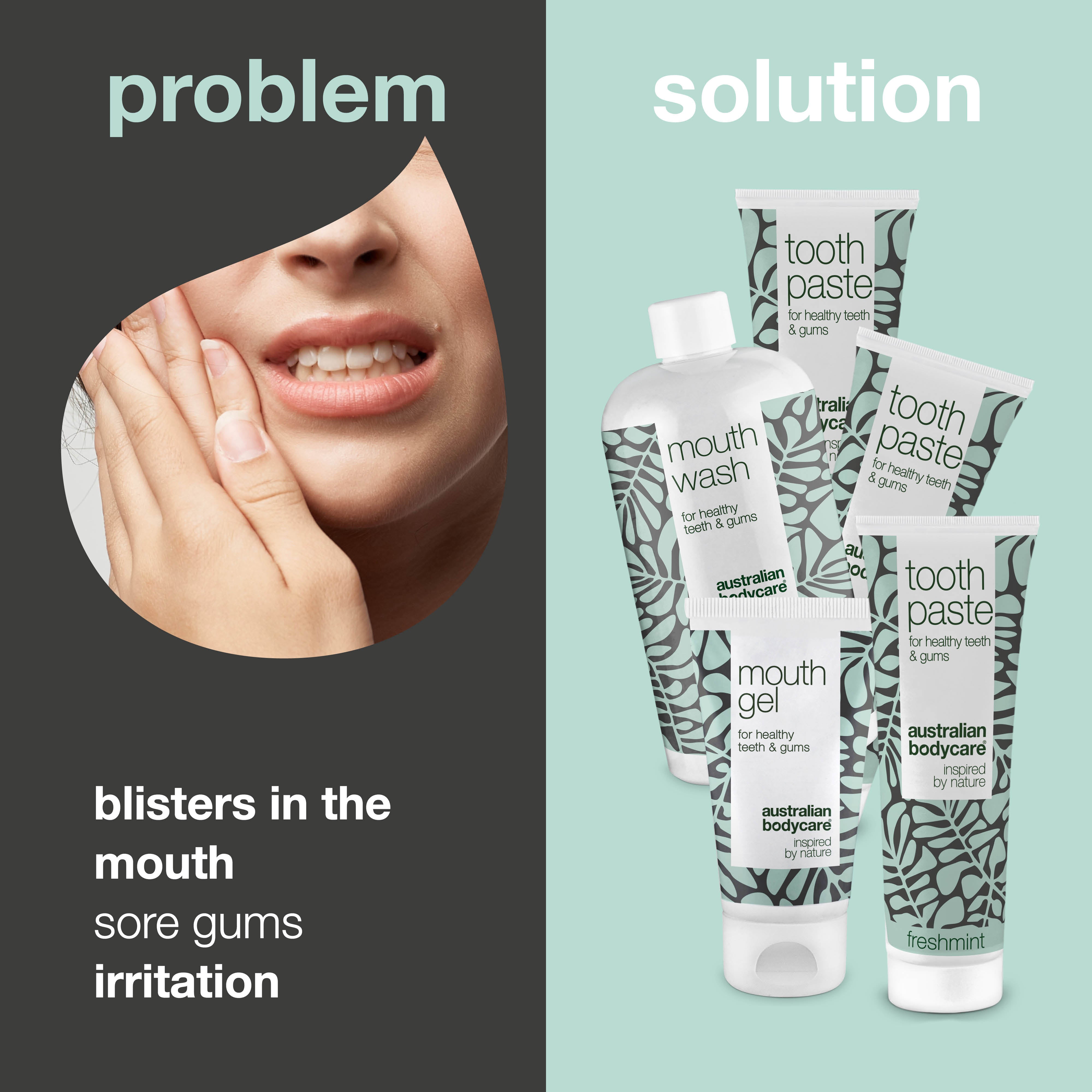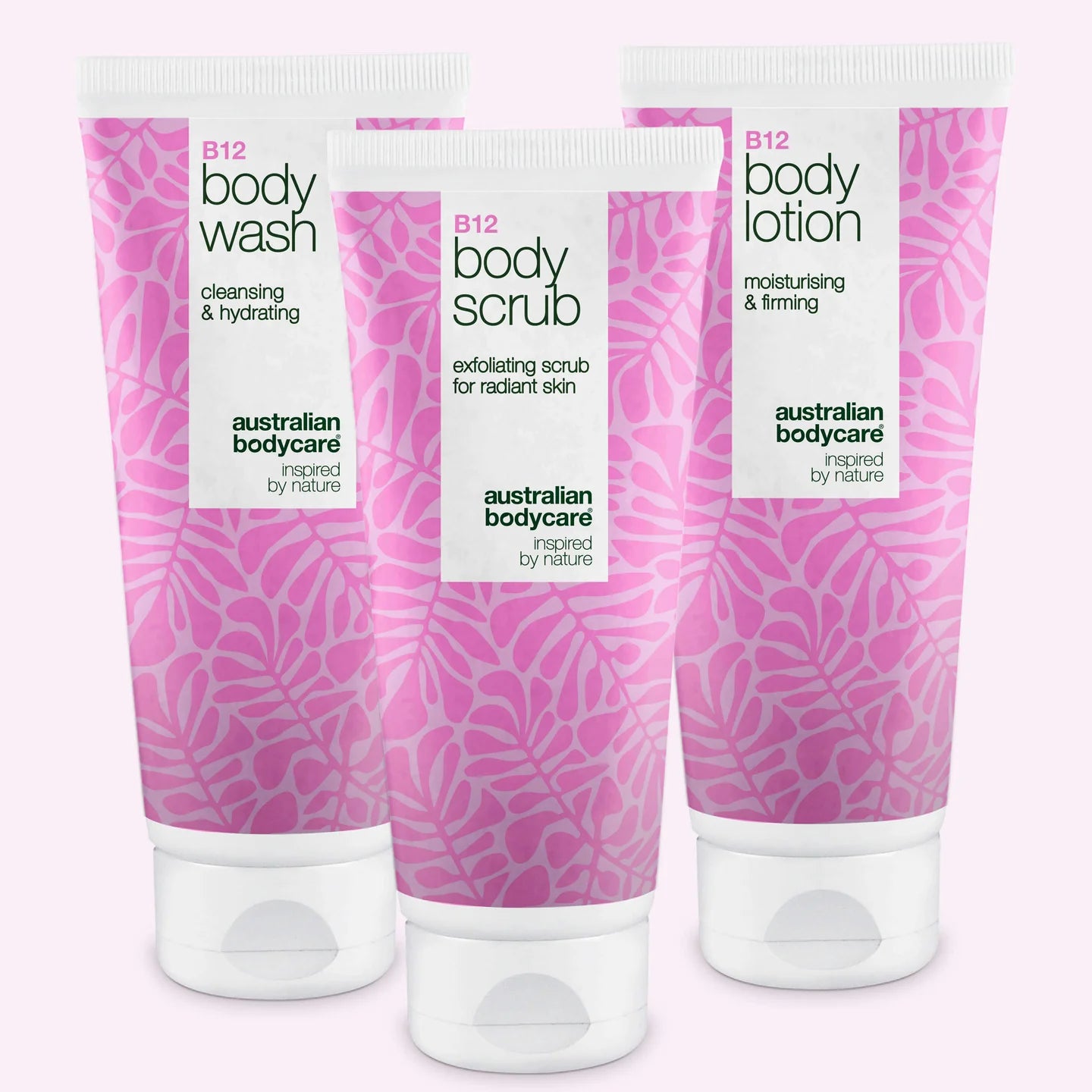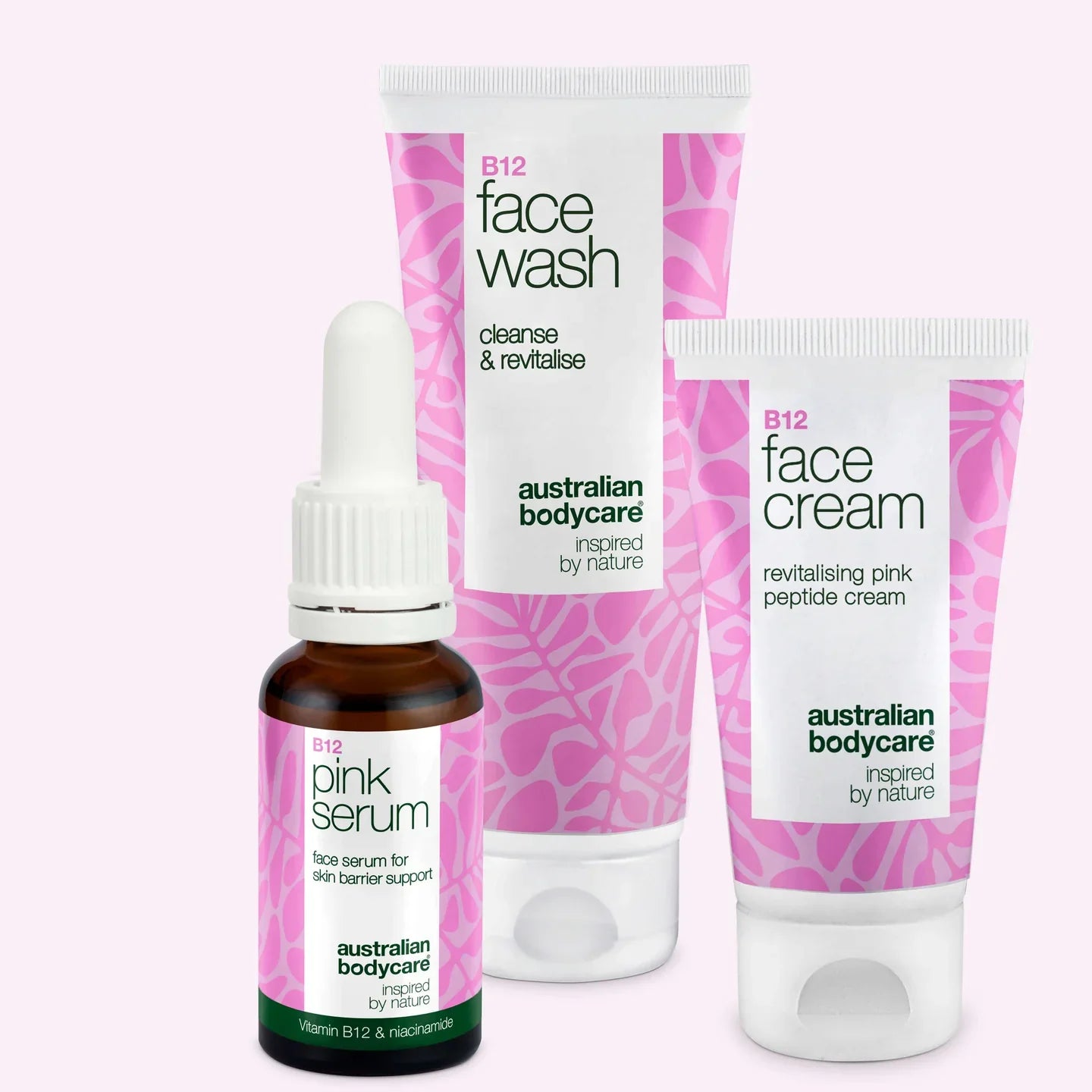Mouth Ulcers: Causes, Symptoms, and Treatment Tips
Mouth ulcers, also known as canker sores, often appear inside the mouth or on the tongue. These sores can vary in size, but most are between 2 and 8 mm in diameter. Up to 15-20% of the population experiences mouth ulcers to varying degrees, with a higher incidence among children and teenagers.
Read on to learn how to manage these irritating sores.
Table of contents
What Are Mouth Ulcers?
Mouth ulcers are painful sores that develop on the mucous membrane of the mouth. These sores, also known as aphthous ulcers, can cause discomfort and pain during meals and while speaking.
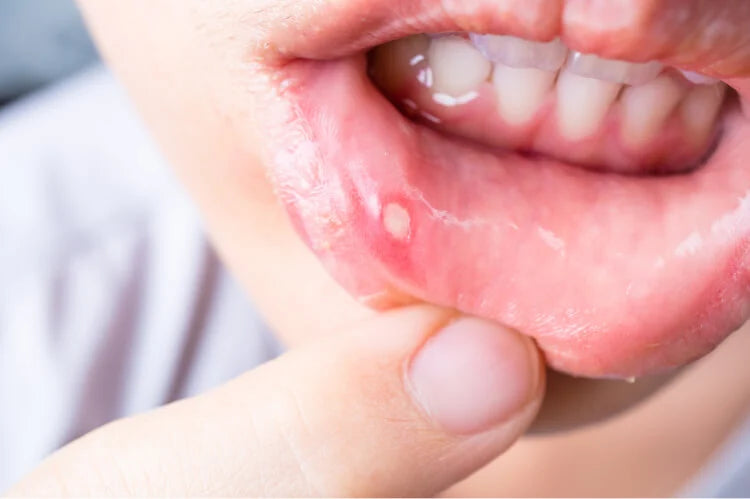
Definition and Causes
Mouth ulcers, or canker sores, are small, painful sores that can occur on the tongue, the inside of the cheeks, and even on the gums. These irritations in the mouth region often appear without warning and can cause significant discomfort.
Although the exact cause of mouth ulcers is not always known, their occurrence is often linked to several factors such as viral infections, minor injuries from biting oneself or brushing, stress, hormonal fluctuations, food allergies, or consumption of acidic foods and drinks.
It is also observed that the condition can be more prevalent in some families than others, suggesting a possible genetic predisposition.
Notably, there is a connection between celiac disease and mouth ulcers, where gluten intake can be a triggering factor for some individuals. Likewise, a deficiency in certain nutrients, such as B vitamins and iron, can play a role in the development of these sores.
Understanding these causes can help individuals take steps to reduce the risk of developing mouth ulcers, such as adjusting dietary habits or better managing stress levels.
Symptoms and Discomfort
Blisters in the mouth manifest as painful sores. They can appear on the inside of the cheeks, lips, or on the tongue. These sores are often small, with a diameter of 2-8 mm, but they can be very painful. People experience a burning or tingling sensation just before a sore appears. Some are also troubled by pain when eating or talking. Sores can last from a week to about two weeks. The frequency and duration of these outbreaks vary from person to person. Some have sores more often than others, which can be a source of great irritation and discomfort in daily life. The person may feel stressed or frustrated by their recurring nature.
Prevention and Treatment of Mouth Ulcers
Preventing and treating mouth ulcers requires a healthy lifestyle that includes a balanced diet with sufficient iron and B vitamins to strengthen the mucous membrane. Reducing stress helps decrease the frequency of outbreaks, and avoiding mouth irritation by steering clear of sharp foods can help prevent the occurrence of ulcers.
Medications such as antiseptic mouthwashes and pain relievers can be used to alleviate pain and speed up the healing process.
Healthy Lifestyle and Stress Reduction
Living a healthy lifestyle and reducing stress can keep mouth ulcers at bay. Eat foods rich in vitamins, avoid excessive sugar, and make sure to get enough rest. Exercise also helps reduce stress levels and strengthens the entire body, including your immune system.
It is important to find healthy ways to cope with stress, such as meditation or yoga, which can help you stay calm and reduce the chances of developing mouth sores.
Drink plenty of water throughout the day to keep your mouth moist and free of bacteria. Good oral hygiene is essential; brush your teeth twice a day with a soft-bristled toothbrush and floss regularly.
Choose dental care products without sodium lauryl sulfate to minimize irritation in the mouth.
Avoid Mouth Irritation
Rinse your mouth with salt water to soothe irritation and reduce bacteria. Avoid sharp, acidic, or hot foods as they can aggravate the sores. Ensure good oral hygiene by regularly brushing your teeth and using a soft toothbrush to avoid further irritation.
Medications and Home Treatments
Medications and home treatments for mouth ulcers can include pain-relieving gels and mouthwashes with chlorhexidine. Dietary supplements with vitamins, minerals, and herbs can also help reduce the number of outbreaks for most people.
Additionally, using antiseptic mouthwashes can help relieve pain and speed up the healing process. Antibacterial agents in the form of mouthwashes can help fight infections and reduce the risk of recurring mouth ulcers.
Using mouthwashes with chlorhexidine has proven effective in reducing pain and shortening the healing time for mouth ulcers. Additionally, applying pain-relieving gel can alleviate pain and discomfort associated with mouth sores.
Avoid Recurring Mouth Ulcers
Regular Dental Care and Oral Hygiene
Regular dental care is essential to maintaining good oral hygiene. Brushing your teeth at least twice a day with fluoride toothpaste helps remove plaque and prevent gingivitis and cavities.
It is also recommended to use dental floss or interdental brushes daily to remove food particles and plaque between teeth. Visit your dentist regularly for routine check-ups and cleanings to maintain healthy teeth and gums.
In addition to brushing and flossing, it is important to consider your diet. Avoid excessive consumption of sugary foods and drinks, as these can increase the risk of cavities.
Follow Doctor’s Advice and Treatments for Underlying Causes
Follow your doctor's recommendations carefully to identify and treat any underlying causes of mouth ulcers. This may involve being tested for viral infections, hormonal imbalances, or food allergies.
The doctor may prescribe appropriate treatment based on symptoms and may provide recommendations on mouthwashes with chlorhexidine or dietary supplements with vitamins and minerals to alleviate symptoms and reduce the frequency of outbreaks.
It is crucial to follow the doctor's instructions on treatments to achieve recovery and better manage the condition.
Conclusion
After reviewing the causes, symptoms, and treatment tips for mouth ulcers, it is clear that many factors can contribute to the development of these uncomfortable sores.
It is important to be mindful of oral hygiene, avoid irritation in the mouth, and follow a healthy lifestyle to prevent outbreaks. Treatment options such as antiseptic mouthwashes and B vitamin supplements can relieve pain and reduce the frequency of sores.
Remember to consult your dentist for advice and treatment if you experience recurring mouth ulcers. With the right measures, you can minimize discomfort and live without disruptions from this irritating condition.
FAQ
What causes mouth ulcers?
Mouth ulcers can be caused by several factors such as stress, hormonal changes like puberty and menopause, certain foods including gluten intolerance, as well as bacteria and viral diseases like cold sores and chickenpox.
How do I recognize symptoms of mouth ulcers?
Symptoms of mouth ulcers include painful sores on the tongue or the edge of the mouth, difficulty eating or sleeping, and sometimes a burning sensation in the affected area.
Can gluten allergy cause mouth ulcers?
Yes, individuals with gluten allergy or gluten intolerance can experience mouth ulcers as a symptom of their condition, as gluten can trigger inflammatory reactions.
What treatment tips are there for mouth ulcers?
Treatment for mouth ulcers includes avoiding foods that can irritate the sores, using medicinal mouthwash to reduce bacteria, maintaining good oral hygiene, and using medications or treatments recommended by your dental clinic.
Are there home remedies for mouth ulcers?
Effective home remedies for mouth ulcers include rinsing with salt water to promote healing, chewing sugar-free gum to increase saliva production, and avoiding foods and drinks that can irritate the sores.
How can I prevent mouth ulcers?
To prevent mouth ulcers, it is important to maintain good oral hygiene, avoid foods you are allergic to such as gluten if you have gluten intolerance, reduce stress, and ensure treatment for any underlying health conditions like herpes or inflammatory diseases.


